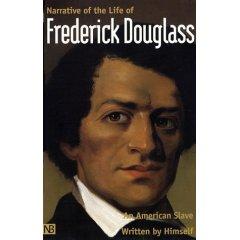| 2020ok Directory of FREE Online Books and FREE eBooks |
Free eBooks > Biographies & Memoirs > Ethnic & National > General > Narrative of the Life of Frederick Douglass, an American Slave, Written by Himself
Narrative of the Life of Frederick Douglass, an American Slave, Written by Himselfby Frederick Douglass  Download Book (Respecting the intellectual property of others is utmost important to us, we make every effort to make sure we only link to legitimate sites, such as those sites owned by authors and publishers. If you have any questions about these links, please contact us.) link 1 About Book From School Library Journal Grade 9 Up-This classic text in both American literature and American history is read by Pete Papageorge with deliberation and simplicity, allowing the author's words to bridge more than 160 years to today's listeners. Following a stirring preface by William Lloyd Garrison (who, nearly 20 years after he first met Douglass, would himself lead the black troops fighting from the North in the Civil War), the not-yet-30-year-old author recounts his life's story, showing effective and evocative use of language as well as unflinchingly examining many aspects of the Peculiar Institution of American Slavery. Douglass attributes his road to freedom as beginning with his being sent from the Maryland plantation of his birth to live in Baltimore as a young boy. There, he learned to read and, more importantly, learned the power of literacy. In early adolescence, he was returned to farm work, suffered abuse at the hands of cruel overseers, and witnessed abuse visited on fellow slaves. He shared his knowledge of reading with a secret "Sunday school" of 40 fellow slaves during his last years of bondage. In his early 20's, he ran away to the North and found refuge among New England abolitionists. Douglass, a reputed orator, combines concrete description of his circumstances with his own emerging analysis of slavery as a condition. This recording makes his rich work available to those who might feel encumbered by the printed page and belongs as an alternative in all school and public library collections. Francisca Goldsmith, Berkeley Public Library, CA Copyright 2002 Reed Business Information, Inc. From AudioFile Frederick Douglass died over one hundred years ago, but his spirit endures in this short account he wrote of his life. Brief yet detailed, it resonates with the same subdued anger and passion against injustice that marked his later work. That spirit of controlled fury has been caught in the reading by Pete Papageorge. Though slow and deliberate, it carries with it an undertone of strong feeling. His deep voice more than suggests Douglass's authority and his position as the grandfather and living symbol of the abolitionist movement. When the ex-slave bristles at the horrors in the slave-holding system and methodically details the damage done by that system to the economy and psyche of the South, it may be Papageorge's voice we hear, but it is Douglass's scathing condemnation ringing through the ages. P.E.F. © AudioFile 2003, Portland, Maine-- Copyright © AudioFile, Portland, Maine School Library Journal Papageorge reads with deliberation and simplicity allowing the author's words to bridge more than 160 years to today's listeners Book Description In 1845, just seven years after his escape from slavery, the young Frederick Douglass published this powerful account of his life in bondage and his triumph over oppression. The book, which marked the beginning of Douglass’s career as an impassioned writer, journalist, and orator for the abolitionist cause, reveals the terrors he faced as a slave, the brutalities of his owners and overseers, and his harrowing escape to the North. It has become a classic of American autobiography. This edition of the book, based on the authoritative text that appears in Yale University Press’s multivolume edition of the Frederick Douglass Papers, is the only edition of Douglass’s Narrative designated as an Approved Text by the Modern Language Association’s Committee on Scholarly Editions. It includes a chronology of Douglass’s life, a thorough introduction by the eminent Douglass scholar John Blassingame, historical notes, and reader responses to the first edition of 1845. “None so dramatically as Douglass integrated both the horror and the great quest of the African-American experience into the deep stream of American autobiography. He advanced and extended that tradition and is rightfully designated one of its greatest practitioners.”—John W. Blassingame, from the introduction Related Free eBooks
| Related Tags |












Ir3ene, 2009-11-20 15:59:08
SEND A COMMENT
PLEASE READ: All comments must be approved before appearing in the thread; time and space constraints prevent all comments from appearing. We will only approve comments that are directly related to the article, use appropriate language and are not attacking the comments of others.